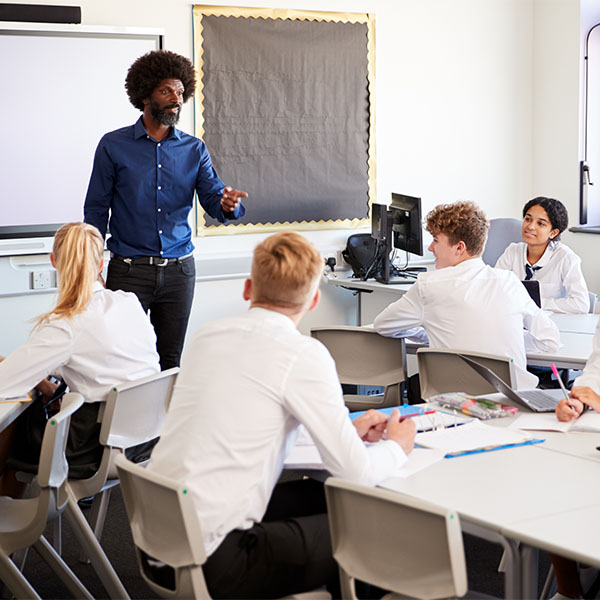Many schools are moving from lesson observations being a one-off judgement and towards more of an ongoing coaching process. But many teachers have told us they still feel the pressure and stress of lesson observations. Could recent research provide an answer of how to make them less intimidating and more empowering?
Observing or being observed in the classroom can often feel like a high-stake balancing act. It's common to feel apprehensive, with worries of judgement or criticism looming. But what if we told you it doesn't have to be this way? Recent research has shown that with the right approach, teacher observations can become less intimidating and more empowering for both the observer and the observed.
Read on to learn more about:
- The challenges of teacher observations
- What the research says
- How to give effective feedback
- How to prepare for a teacher observation
What are the challenges of teacher observation?
Teaching observation, despite its numerous benefits for professional development, can be a daunting experience. There are various challenges that both observers and those being observed may face during this process, and acknowledging these challenges is the first step towards addressing them effectively.
Let's take a closer look at some of these issues…
For the observer
- Bias – It's human nature to bring our own perspectives and biases into any situation, including teaching observations. This can impact the objectivity of the feedback given.
- Misinterpretation – Observers may not fully understand the context or reasoning behind certain teaching methods, leading to potential misinterpretation.
- Time constraints – Conducting thorough and meaningful observations requires time; something teachers often have in short supply.
- Lack of training – Not all observers may have received adequate training on how to conduct effective observations and provide constructive feedback.
For the observed
- Anxiety about being observed – The mere presence of an observer can cause anxiety, potentially affecting the teacher's performance during the lesson.
- Fear of negative feedback – Teachers may worry about receiving negative feedback, which can impact their confidence and self-esteem.
- Disruption of classroom flow – The observation process may disrupt the normal classroom routine, which can be unsettling for both teachers and students.
- Perceived lack of confidentiality – Some teachers may fear that feedback from the observation could be shared with others, leading to feelings of vulnerability.
- Unclear expectations – Without a clear understanding of what is expected during the observation, teachers may feel uncertain and apprehensive.
These challenges, while significant, are not insurmountable. So, what can research tell us about making teacher observations less daunting?
What does the research say ?
Reciprocal Peer Observation (RPO) is where teachers observe each other's lessons and provide feedback. However, it's common for teachers to feel hesitant or resistant to this practice. One study from a Spanish university provides valuable insights to address this issue.
It involved 394 teachers who participated in an RPO programme, and the results were promising – after the programme, there was a significant decrease in the resistance to RPO among the participants. Here are some of the key findings:
- Teaching experience and training matter – Teachers with more experience and proper training showed less resistance to being observers in the RPO process. This highlights the importance of providing adequate training to teachers participating in RPO.
- School support plays a crucial role – The support from the school (in terms of training, time allotted for RPO meetings and overall encouragement) significantly influenced the initial resistance to both observer and observed roles.
- Voluntary participation and confidentiality are key – The study underscored the need for voluntary participation in RPO. It also emphasised the importance of maintaining confidentiality between participants to foster a safe and trusting environment.
So, if you're feeling apprehensive about teacher observations, know that you're not alone. But also know that with the right support and preparation, it can become a less daunting and more beneficial experience.
Final thoughts
Teacher observations can be a powerful tool for professional growth if approached with the right mindset and preparation. By giving effective feedback, understanding the challenges and preparing adequately, these observations can be less daunting and more beneficial.
Remember, the goal is not perfection, but continuous improvement. By embracing teacher observations as an opportunity to learn and grow, you can level-up your teaching for your students. It might seem daunting now, but with these strategies, you're well equipped to try and face it head on.
To help your staff to understand and apply the latest and most important Cognitive Science research such as this, join our Teacher CPD Academy today!







